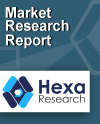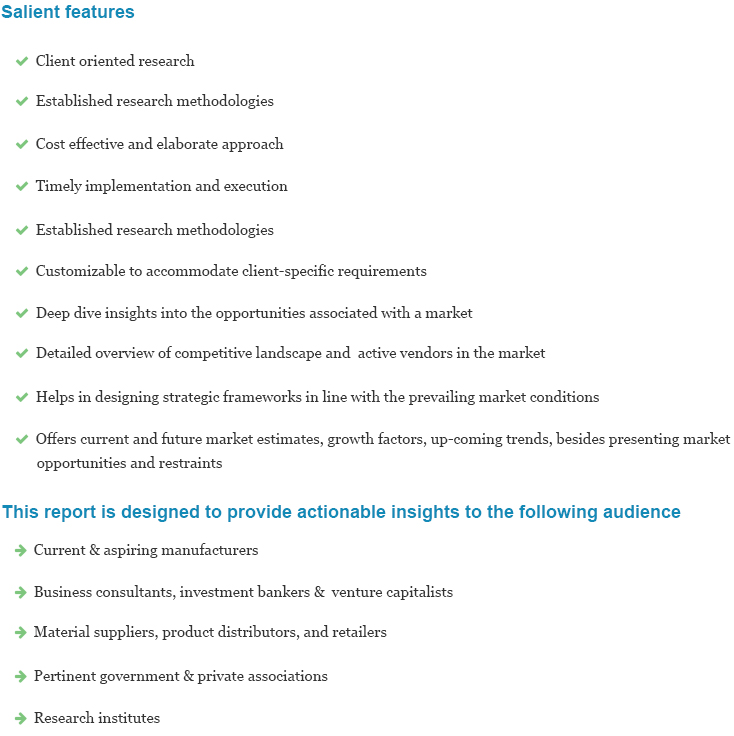
DNA Sequencing Products Market Analysis, Market Size, Application Analysis, Regional Outlook, Competitive Strategies and Forecasts, 2016 To 2024
- Published: November, 2017
- Format: Electronic (PDF)
- Number of pages: 70
- Industry: Medical Devices
The DNA sequencing products market is expected to grow at a significant pace from 2016 to 2024 owing to the advancements in personalized medicine facilities. Medical facilities around the globe are increasingly offering sequencing based medical treatment. Sophisticated technologies including rapid DNA sequence for quantitative and large-scale assessments of genomic sequences are rapidly increasing the demand for DNA sequencing products.
Furthermore, Next Generation Sequencing (NGS) technologies find applications in forensic science. Forensic DNA analysis face challenges wherein the samples obtained are highly degraded, low copy number and contaminated. These samples require high reproducibility and accuracy along with cost and time considerations. Forensic scientists are exploring the usefulness of NGS technology that overcomes the limitations of first generation sequencing. Moreover, this technology is also used to determine the paternity of a child and identifies protected and endangered species. The increase in usefulness is expected to benefit the market over the next eight years.
These products help biomedical science in making important research discoveries, for instance, the technology called Sanger sequencing has helped scientist in determining genetic code. Rapid discoveries are made possible because of its personalized and precision medicine initiatives.
Furthermore, medicine or pharmacology applications such as checking the responsiveness of specific drug, identifying oncogenic tumor tissue variants allows physicians to develop a treatment program for genetic-based cancer. Moreover, it can detect genes linked to genetic disorders such as muscular dystrophy and techniques such as gene therapy can be used to replace them with healthy ones. These applications make these products a vital tool propelling the demand over the forecast period.
These products help in mapping of genome of microorganisms. This helps them useful for food plants and crops by using specific gene of bacteria to increase resistance against pest and insects along with increases nutritional value and productivity. This plays a vital role in the agricultural field and is expected to drive the demand for such products.
Lack of commercialization of sequencing products is one of the major challenges. However, research facilities and government provides funding to these technologies, which helps manufacturers in expanding their businesses.
North America is expected to witness exponential growth over the forecast period owing to the presence of well-established vendors such as Agilent Technologies Inc. and International Business Machines Corp. in the region. Furthermore, manufacturers are increasingly getting CLIA certification, which is the United States Federal Regulatory Standard for developing these products.
Illumina Inc., International Business Machines Corp., Roche Diagnostics, Thermo Fisher Scientific, Pacific Biosciences of California Inc., AC-Gen Reading Life and Agilent Technologies are the key industry players. The market is highly competitive owing to presence of several established vendors offering innovative products. Providers use product differentiation as well as strategic alliances, mergers and acquisition strategies to gain competitive advantage.
In April 2016, Illumina Inc. announced that it has introduced BaseSpace Suite, which is complete suite for genomics software tools to facilitate precision genomics and medicine research. The product provides comprehensive platform for analysis, sharing, interpretation, reporting and advanced cohort.
In November 2015, Thermo Fisher Scientific announced that it has entered in long-term agreement with Novartis and Pfizer in commercializing and developing universal NGS oncology test that will serve as a companion diagnostic for non-small cell lung cancer across multiple drug development programs
Pacific Biosciences of California Inc. offers differentiated and innovative solutions to gain competitive advantage. The Single Molecule, Real Time (SMRT) sequencing provided by the company was used to elucidate complex traits and genomes for plant and animal species.
In October 2015, Agilent Technologies announced that it has introduced 4200 TapeStation System for Next-Generation Sequencing. The new product is fully automated instrument, which enables scientists to rapidly analyze up to 96 DNA samples at a time.

Choose License Type
- World's largest premium report database
- Transparent pre & post sale customer engagement model
- Unparalleled flexibility in terms of rendering services
- Safe & secure web experience
- 24*5 Research support service
